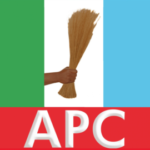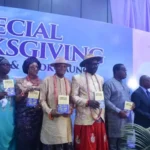By Emmanuel Mogbede
The Society of Nigerian Broadcasters (SNB) on Monday in Abuja emphasised the need for a National Information Policy as a foundation to guide ethical and responsible broadcasting across the country.
Mr Ismail Sani, Vice-President (North-Central Zone), of the SNB, in a statement, said that such policy would ensure consistent and fair dissemination of accurate information to the public.
He said it would also ensure equal access to reliable information across regions of Nigeria, including rural areas.
“It will also promote media independence balanced with accountability to support the industry’s role in national development,” he said.
Sani said that the SNB, at its recent National Executive Committee (NEC) meeting in Lafia, resolved to collaborate with government bodies, regulatory authorities and private sector partners.
He said the essence was to advocate for priorities to create a broadcasting environment that would serve public interest, support national development goals and uphold the integrity of the Nigerian media on local and international platforms.
“While recognising the risks associated with the profession, the SNB called for stronger security measures to protect broadcasters, including physical security, for those working in challenging or high-risk environments.
“The SNG also called for cyber-security measures to protect data and infrastructure from digital threats, safeguarding the integrity of information,” he said.
He reiterated SNB’s commitment to welfare and continuous professional training programmes to equip broadcasters with skills in emerging technologies, ethical journalism and industry best practices.
Sani assured Nigerians that the society would pursue welfare initiatives aimed at supporting broadcasters’ well-being, enhanced job security and improved working conditions to promote motivation and long-term dedication to the profession.
He appealed to government at all levels to provide appropriate incentives to media houses to ameliorate the cost of energy that had forced some broadcasting stations to reduce hours of transmission.(NAN)
Edited by Ephraims Sheyin












[…] This article was carefully curated by Pan Africa News Agency to showcase authentic African narrative… […]